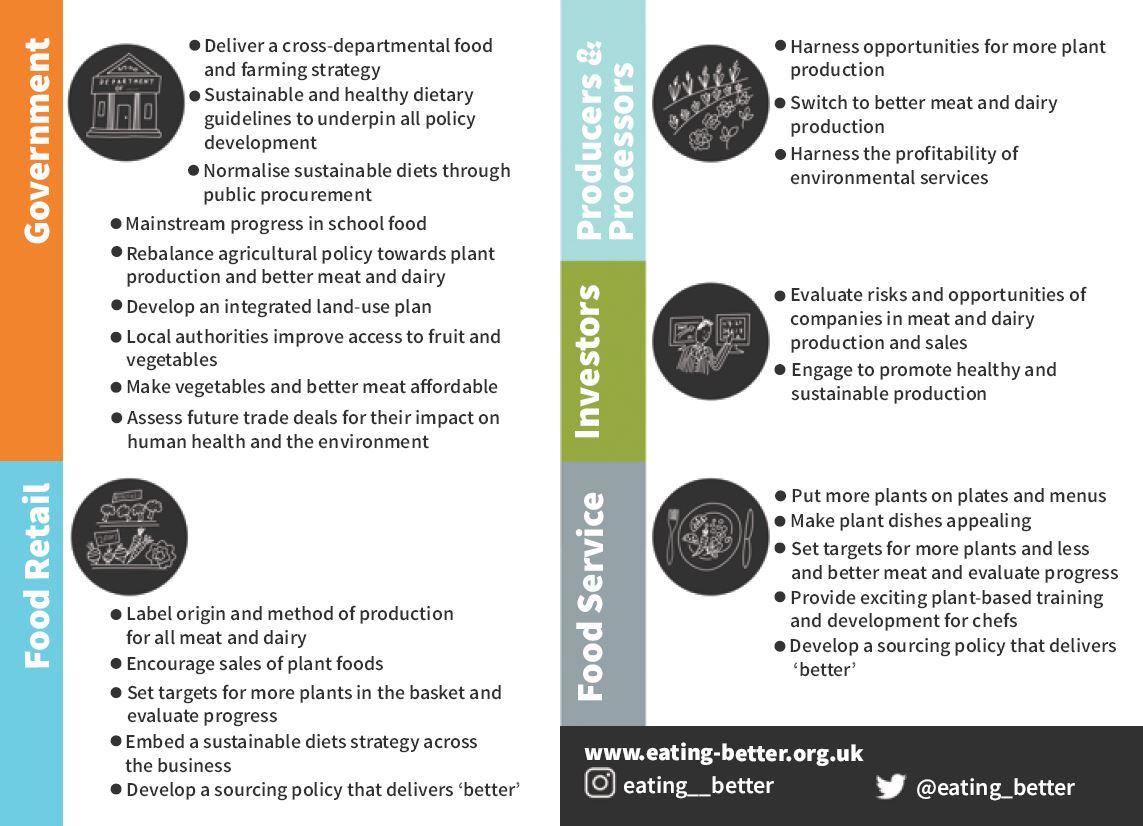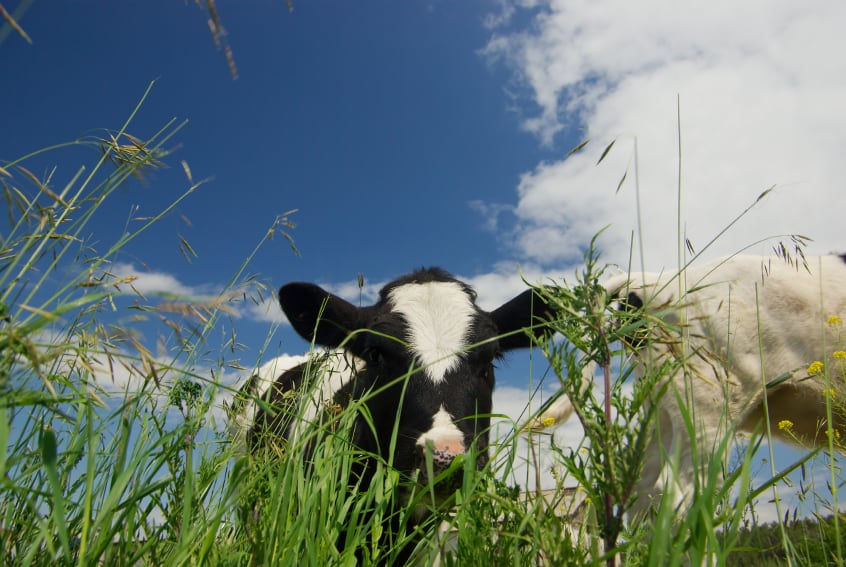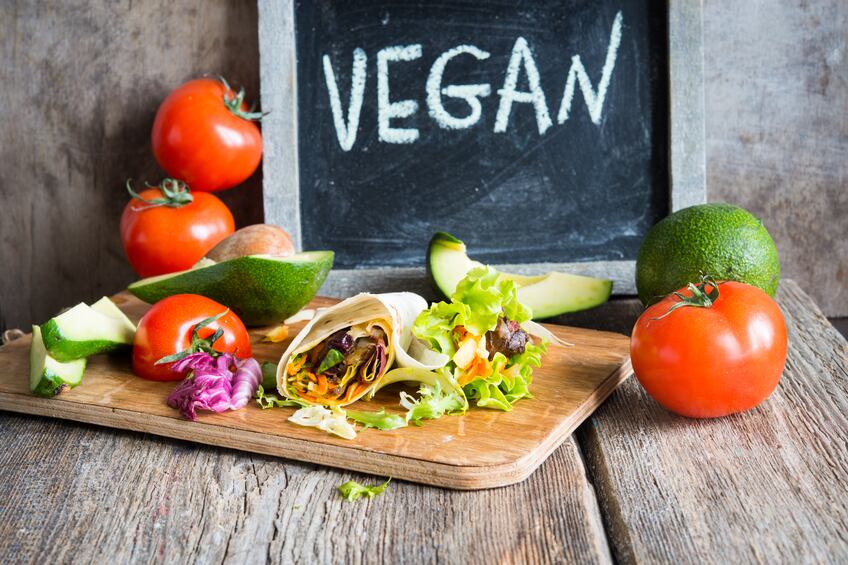The Eating Better alliance of over 60 organisations has set out steps to stimulate a 50% reduction in meat and dairy consumption as well as a transition to ‘better’ meat and dairy standards.
‘Better by half: A roadmap to less and better meat and dairy’ was launched at an event for businesses, MPs, NGOs and others in Westminster last week.
Half of consumers claim to be cutting meat
According to Eating Better, UK consumers are increasingly aware of the environmental impact of livestock production. A 2019 YouGov survey, commissioned by the association, found 38% of UK shoppers are aware of the environmental consequences of meat and dairy, up from 31% in 2017.
This is already leading to a shift in attitudes. The same survey found almost half, 48%, of consumers are already willing or committed to cutting down – or cutting out – meat consumption.
However, there appears to be a gap between statements of intent and action. And the generational divide might not be what you’d expect.
Daily meat consumption is still the norm for many and the most environmentally aware consumers, 18-24 year olds, are frequently still eating meat on a daily basis. According to the survey 49% of this age-bracket are aware of the environmental implications of meat consumption and 38% said they wanted to moderate eating meat for environmental reasons – but 33% are still eating meat daily.
Interestingly, this compares to just 15% of over 65s, despite this group having the lowest awareness of meat’s impact. Thirty per cent of 50-64 year olds and 26% of over-65s report eating less meat than this time last year, compared to just 16% of 18-24 year olds.
Eating Better stressed the availability of plant-based options is improving as retailers respond to growth in this segment. Mintel research in 2019 has shown that plant-based launches soared to one fifth of all retail food new product development in the last year. Eating Better surveyed 620 sandwiches for sale in the UK earlier this year and some retailers such as Tesco and Pret a Manger are responding to consumer demand for more plant-based options
The case for reducing animal protein: nutrition and environment
According to Eating Better, the argument for increased consumption of plant-based products is twofold.
Firstly, it will help improve population health and address inequalities through nutrition, the body suggested.
The importance of eating moderate amounts of meat and dairy is increasingly being recognised in national dietary guidelines, including the UK’s Eatwell Guide. According to the FAO, the UK consumes twice the global average of animal-based protein. Eating Better said UK consumers do not eat enough fruit and vegetables for ‘good health’.
“We know that where we live, and work plays a huge role in our health and wellbeing. Children from the poorest areas with the most unhealthy food environments are twice as likely to be obese as their wealthier counterparts,” Shirley Cramer, chief executive of Royal Society for Public Health, stressed.
The value of diversifying diets to include more vegetables, wholegrains, nuts, seeds and pulses is ‘clear’. However, the campaign group noted, it isn’t always easy for people to make ‘good food choices’. Local and national policy should be used as a tool to address this issue, Cramer argued.
“It is vital that we have robust national and local policies in place to improve the environment so that the default food option is the healthy one. Only then will we begin to tackle our growing health inequalities.”
A transition to a more sustainable food system would also help avert ‘dangerous climate change’, speed progress towards the UK’s target of being neutral in greenhouse gases (GHG) by 2050 and restore nature.
“A transition to less and better meat and dairy will bring a host of benefits from reducing greenhouse gas emissions, freeing up land to support biodiversity and carbon sequestration, improve animal welfare and reduce antibiotic use, as well as improving our health,” Eating Better suggested.
A multi-stakeholder response
Eating Better conceded that changing the nation’s eating habits is a ‘complex challenge’ that ‘no one can achieve on their own’. The coalition called for a multi-stakeholder response, including civil society, business and government. In particular, the group insisted government action needs to accelerate.
“The Eating Better alliance has been encouraged by recent announcements by the UK Government. They have laid out legislation for the UK to contribute net zero greenhouse gas emissions by 2050 and announced an independent review to inform a National Food Strategy.
“The alliance is keen to see these commitments turn to action as there is a feeling that Government has lagged behind consumers, growers and food businesses for too long. They need to be at the table in creating the right environment for people to eat more sustainably,” Simon Billing, executive director of Eating Better, said.

Eating Better has identified 24 actions targeted at government, food service and retail, food producers and investors. The approach taken is to support people to make good food decisions. It is about providing the ‘right environment’ and not telling people what they can and can’t eat.
The roadmap demonstrates the ‘critical importance’ of government action. One of the actions set out in the roadmap is for the UK Government to ‘deliver a cross-departmental food and farming strategy'. It also calls for public procurement, agricultural policy and future trade deals to reflect the need to promote diets with a higher plant and 'better' animal content.
Food retailers should target increased plant-based sales and achieve this through labelling and ranging; food producers should switch to 'better' meat and dairy sources and harness opportunities for increased plant-based production; investors should evaluate risks associated with meat and dairy and engage in a dialogue on sustainable production; and food service providers should 'put more plants on plates' and develop 'better' sourcing strategies.
Eating Better stressed that it has growing backing from UK farmers. It claimed farmers and growers increasingly support calls for ‘less and better’, which can support farm livelihoods. Nature Friendly Farmers Network and Pasture-fed Livestock Association both joined the Eating Better Alliance in the last year to call for less and better meat and dairy.
However, a spokesperson for the National Farmers Union – not a member of Eating Better – stressed that UK farming is already ‘world-leading’ in its sustainability standards. NFU members have targeted carbon neutrality by 2030.
“The British livestock and dairy sectors are among the most efficient and sustainable in the world, and contribute high quality, affordable products to a global larder which can be enjoyed as part of a healthy, balanced diet,” a spokesperson told FoodNavigator.
“British farmers will continue to play a crucial role in providing a diverse supply of high quality, affordable produce in the most efficient and sustainable way for everyone to enjoy.”




